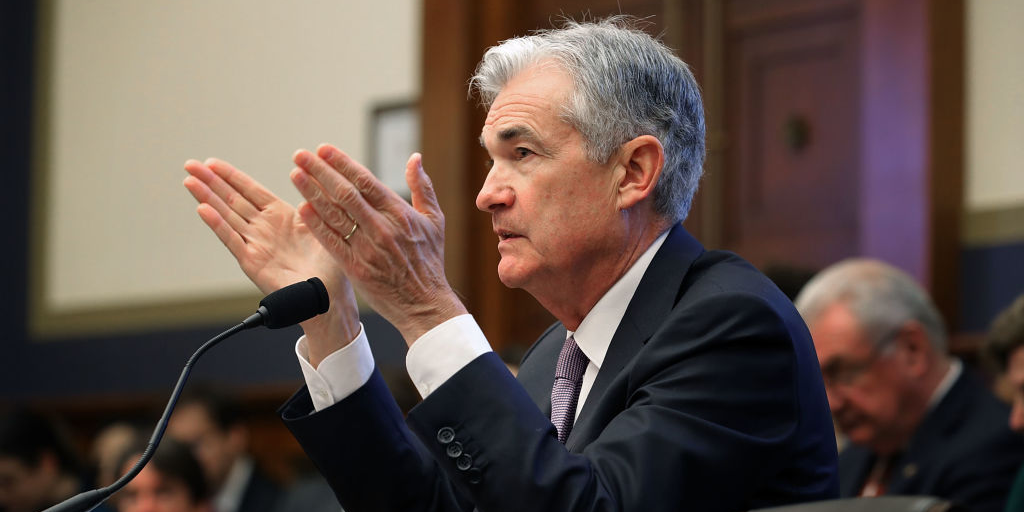- The Federal Reserve lowered interest rates by 50 basis points on Tuesday to boost the economy amid coronavirus panic.
- It’s the first emergency rate cut and the largest one-time cut since the financial crisis.
- The action shows just how big a threat the coronavirus outbreak is to the US economy.
- Read more on Business Insider.
The Federal Reserve lowered interest rates by a half percentage point on Tuesday to combat economic fallout due to coronavirus. It was the first emergency rate cut and largest one-time cut since the financial crisis.
Fed leaders voted unanimously in favor of the 50-basis-point reduction, which came before the Fed’s scheduled meeting later in March. The surprise cut signals that central bankers see the coronavirus outbreak as a threat to the US economy.
“Clearly the Fed can’t develop a cure or vaccine for the COVID-19 outbreak, so they are reacting to the upcoming threat to economic activity in the only way they know how – by targeting monetary policy,” Chris Zaccarelli, chief investment officer for the Independent Advisor Alliance, told Markets Insider in an email.
Monetary policy is one tool that the Fed has to step in and aid the economy in times of strife. The emergency cut shows the Fed “going to do what they can,” Nancy Davis, chief investment officer of Quadratic Capital Management, told Markets Insider in an interview. “The question is, what is enough?” she said.
The lowered interest rates come amid panic that the coronavirus will swell to pandemic status and hinder global growth. On Monday, the Organization for Economic Cooperation and Development said the virus had put the world economy in its "most precarious position" since the 2008 financial crisis. At the end of February, Goldman Sachs lowered its economic forecast for first quarter growth in the US amid coronavirus fears.
Also on Tuesday, G-7 finance ministers and central bank governors said they would closely monitor the effects of the coronavirus on global markets and the economy, but fell short of a specific policy response to the outbreak. The statement was a stark contrast from 2008, when the group announced "urgent and exceptional action" to bail out banks.
There are a few other efforts underway to protect the US economy from the impact of a potential epidemic. A $7.5 billion emergency funding package is being prepared by Congress to combat a potential epidemic, and President Trump also called for a reduction in payroll taxes, which would give workers an immediate boost on their paychecks.
Even though the Fed's actions show that it's doing what it can to hold off a possible recession, some are skeptical that the half-point cut will be enough to help the US economy.
Interest rates are already historically low, and 50 basis points will have only a marginal impact on consumers and businesses going forward, Seema Shah, chief strategist at Principal Global Investors, told Markets Insider in an interview.
When there's already fear about a virus, a rate cut is not going to "make you travel, make you book the next cruise," Shah said.
It will also do little to help businesses that have warned earnings will be impacted, canceled conferences, halted employee travel, and sent workers home due to the coronavirus outbreak. Halted work in the US and overseas could cause a supply shock and potentially lead to a stagflationary environment marked by low growth and higher prices, according to Davis.
"The US economy is so driven by consumers that higher prices in the form of inflationary pressures that are not growth related could be really devastating," Davis said.

